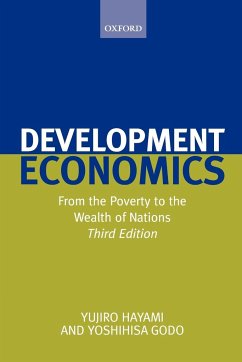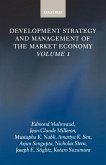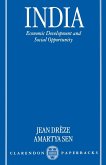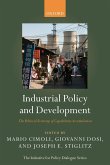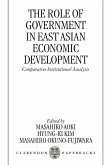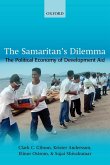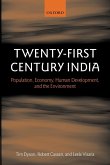This volume explores the nature of these constraints, with the aim of identifying the means to remove them, and examines countries where the constraints have been successfully lifted - most notably Japan and East Asian NIEs. This fully revised and updated third edition also incorporates analyses of several recent changes and newly emerged problems relevant to the global economy: recurrent economic crises in Latin America contrasted with the recovery of East Asia from the 1997-8 financial crisis; a paradigm change in international development assistance from 'the Washington Consensus' to the 'the Post-Washington Consensus', with a major shift in its focus from economic growth to poverty reduction as manifested in the United Nations' Millennium Development Goals; and the stalemate in international collaboration on the environment as represented by delays in the ratification of the Kyoto Protocol. In exploring these issues, Development Economics provides important lessons on what institutions can promote economic growth, reduce poverty, and conserve the environment through the borrowing of technology.
This book provides a comprehensive, systematic treatise on development economics, combining classical political economy, modern institutional theory, and current development issues. It addresses one basic question: Why has a small set of countries achieved a high level of affluence while the majority remains poor and stagnant? This fully revised and updated third edition also incorporates analyses of several recent changes and newly emerged problems relevant to the global economy.
Hinweis: Dieser Artikel kann nur an eine deutsche Lieferadresse ausgeliefert werden.
This book provides a comprehensive, systematic treatise on development economics, combining classical political economy, modern institutional theory, and current development issues. It addresses one basic question: Why has a small set of countries achieved a high level of affluence while the majority remains poor and stagnant? This fully revised and updated third edition also incorporates analyses of several recent changes and newly emerged problems relevant to the global economy.
Hinweis: Dieser Artikel kann nur an eine deutsche Lieferadresse ausgeliefert werden.

